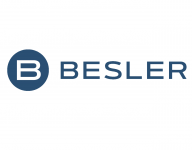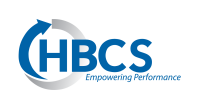 The chapter would like to congratulate Alex Yerukhimov on completing the CHFP certification process. We recently checked in with Alex to hear about his certification experience.
The chapter would like to congratulate Alex Yerukhimov on completing the CHFP certification process. We recently checked in with Alex to hear about his certification experience.
HFMA: Tell us a little bit about your background – did you come to health care finance from the health care side or the finance side? What has your career trajectory been?
Alex: I started on the premed path in college, complete with MCAT and orgo, then learned too much about the dysfunction of the healthcare system and went into industry to try and have a greater impact. I was an EMT, nurses aide and clinical researcher so I bring a bit of patient care perspective to the finance angle. My hope is to bridge the empathy of patient care with the practicality of administration.
HFMA: When did you first join HFMA?
Alex: This is my first year as an HFMA member.
HFMA: When did you first consider getting certified? How did you hear about certification?
Alex: I had vaguely heard about certifications before I joined HFMA, but it wasn’t until I heard about the new membership model during the HFMA Annual Conference that I decided to get as many [certifications] as I could.
HFMA: Describe the exam process for those who aren’t familiar with it.
Alex: The exam is a series of 75 multiple choice questions following a self paced online course that is predominantly text based with knowledge checks sprinkled in at the end of each section. You are allowed to flag questions for review at the end and have three hours to complete the exam.
HFMA: What tips would you give someone looking to get certified?
Alex: I would recommend to do the course and exam in as concentrated a format as possible, in one sitting or over the course of two consecutive days would be best. The CFHP course covers a range of topics from accounting to rev cycle to a little bit of regulation and even a hint of operations. I did the course over a longer stretch of time and ended up going back and reviewing the sections that had been done more than a couple of days ago and not doing as well on the exam as I think I could have. I realize that that is a big ask, to devote an entire day to this, but trust me it will be the most time efficient way. I would also recommend going through that reviewing all of the checkpoint questions at the end of each section before doing the exam. Some of the exam questions are similar and the checkpoint questions are a risk free way to check your understanding.
HFMA: Did your employer support you in pursuing certification? If so, how?
Alex: Definitely do it. Having come from academia, this course was refreshing in that it was quite focused on the practical applicability of the knowledge rather than simply theory. The content was curated in a way that it was easily understandable how it would apply to everyday operations. For those just entering the healthcare finance space, it provides a great primer. For those who have already been working in the space this should be a relatively easy exercise that puts whatever individual department or process you may be in, into the greater context of the hospital’s overall operations and financial picture. The credibility and recognition of the HFMA certifications should additionally help those, especially younger in their careers, with a level of confidence of understanding how they fit into the bigger picture and justify the knowledge and perspective to move up in their careers.
HFMA: How has certification helped you in your job/how do you anticipate it will help you in the future?
Alex: To understand how any industry works, there is no better way than to follow the flow of money. However, short of actually working in the space for an extended period of time, there are no classes available in university or graduate school that teach healthcare revenue cycle and healthcare finance. The HFMA certification programs fill a unique gap that I have not been able to find elsewhere. Completing these certifications gives me a personal level of confidence when discussing and approaching these areas and for anyone working either directly in administration or in the greater ecosystem, you cannot effectively identify, articulate, or propose improvements to this complex system without first understanding how it works.
Congratulations, Alex, and thank you for sharing your thoughts with us.















